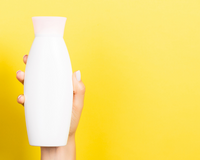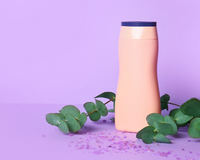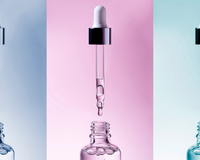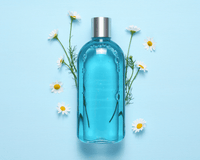Best Black Skin Care Products is dark-skinned people's best friend. Our ethnic origin influences the structure and appearance of our skin. The term ethnicity, in the context of skin, also refers to the diverse environmental and cultural factors that affect the appearance and health of the skin.
In this area, pigmentation is the focus of research. Although there are limits to categorization and the results are inconsistent, it appears that skin structure and problems differ between ethnic groups. This should also be reflected in the treatment and care and the products used.
How Skin Color And Pigmentation Differ By Ethnic Group
Our skin color is determined by the density and distribution of melanin. The pigment is produced in the basal layer of the epidermis by special cells called melanocytes. This melanin is then transferred to other cells in the basal layer and the skin is enriched with pigment.
All ethnic groups have roughly the same number of melanocytes in their skin. The difference is not only in the activity of the melanocytes but also in the structure and grouping of the cells. And it is precisely these differences that lead to the development of different skin colors.
Trying to change skin color can affect skin health :
- The desire for tanned skin with a light skin type increases the susceptibility to skin cancer.
- The pursuit of a culturally more attractive lighter skin tone by women with dark skin may lead to the use of unsuitable products that can damage the skin.
The Ethnicity Factor In Skin Types
While all ethnic skin types have numerous skin types and disorders in common, ethnicity can be a factor in their frequency and appearance.
There are clear differences between light and dark skin tones when it comes to reactions to the sun, pigmentation disorders, irritation and inflammation.
UV radiation
The effect of UV radiation is one of the most important factors for skin health across all skin colors. It is estimated that around 10% of the population will develop skin cancer at some point in life.
Skin Type Check: What Kind of Care Does Best Black Skin Care Products?
The dark skin type knows the advantages and challenges that its skin texture brings with it. As insensitive as dark skin is to external environmental influences, targeted care against hyperpigmentation and inflammatory impurities should not be neglected. We'll tell you now which special care tips are particularly beneficial for this skin type.
Best Black Skin Care Products: The skin types
The nature of the skin and its self-protection time when exposed to sunlight is largely responsible for the corresponding skin type. There are six skin types:
- Nordic type
- Celtic type
- Mixed type
- Mediterranean type
- Dark skin types
- Black skin types.
Dark skin is less sensitive
While the light skin types I - III react more sensitively to external environmental influences, the dark skin types are less sensitive, have a longer self-protection time in the sun and show fewer signs of aging. This enviable property comes from the high concentration of melanocytes and melanosomes in the skin. They prevent UV damage, wrinkles and other changes in the structure of the skin. In addition, dark skin types have a higher oil content, which also protects the skin from premature aging. Finally, dark skin renews itself 2.5 times faster than light skin.
Challenges
But the high content of melanocytes and melanosomes is also the Achilles' heel of dark skin types. Due to excessive melanin production, the skin is more prone to inflammation and acne. Even after several weeks and even months, the "post-inflammatory hyperpigmentation" can persist in the form of dark spots.
The Benefits of Dark Skin
Dark skin contains a high concentration of melanin and is, therefore, less sensitive to UV radiation and other visible signs of UV damage, such as wrinkles and changes in the skin structure. The higher oil content of dark skin also helps protect the skin from signs of aging. Darker skin renews itself 2.5 times faster than lighter skin and thus helps to make the skin look younger and healthier.
The Texture of Dark Skin
Although dark skin does not "burn" in the sun to the same extent as light skin, sun damage can lead to bumps and discoloration even on dark skin. Therefore, sun protection should not be forgotten even with dark skin.
Dark-skinned women are at risk of developing dark spots such as pimples or pigmentation disorders known as post-inflammatory hyperpigmentation (PIH). These spots can persist for weeks or months after the acne has healed due to excessive melanin production Tips for African American skin
- Don't be afraid of sun protection. Regardless of skin type and skin tone, it is important to use a daycare cream with at least SPF 15every day to protect the skin from UV damage. Sunscreen can also prevent a pimple from developing into a dark patch of skin.
- Look for an oil-free formula in your moisturizer that won't clog your pores. A moisturizer at night will help keep your skin hydrated.
- Prioritize certain active ingredients. To prevent blemishes, wash your face with a cleanser that contains salicylic acid. You can also use peeling to intensively cleanse the pores. To protect the skin from drying out immediately after cleansing, apply your moisturizer as soon as possible.
With the knowledge of the dynamic composition of your skin and armed with the most important care tips, you are on your way to achieving your most beautiful African American skin.
Care tips for Best Black Skin Care Products
- In principle, the same applies to dark skin types: Don't be afraid of sun protection! Even care with SPF 15 can prevent pimples from turning into dark spots.
- Oil-free and pore-refining products that are non-comedogenic and have anti-inflammatory effects are particularly recommended. Ingredients such as salicylic acid have a light peeling effect and ensure intensive cleansing of the skin. Active ingredients such as flavonoids and niacinamides soothe the skin and smooth out irregularities.
- 1-2 a week a peeling ensures the thorough removal of dead skin cells. In this way, nourishing ingredients can work better and the skin is cleaned pore-deep.
- Avoid mineral oils, alcohol and fragrances in order not to irritate the skin additionally.









